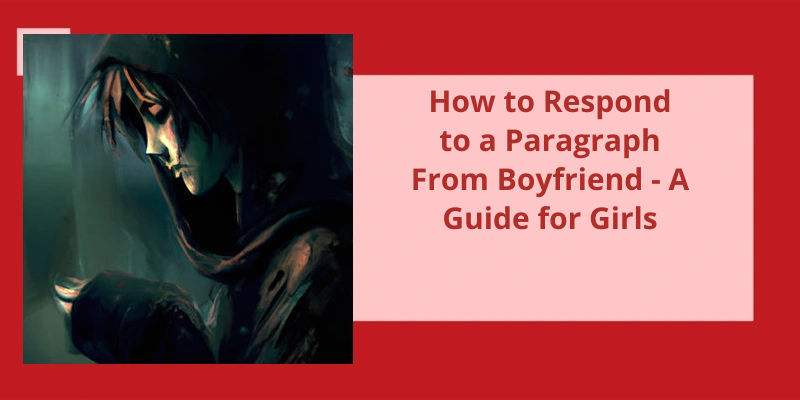When a girl tells you that she loves you, it can be a moment of excitement and confusion. You may not know how to respond or what to do next. It's important to remember, however, that honesty is always the best policy. If you don't feel the same way, don't say it back just to spare her feelings. Instead, calmly explain your feelings and let her know that you appreciate her honesty. Additionally, take some time to evaluate your relationship and determine if your feelings are growing in the same direction. If you do love her, let her know how you feel and take steps to deepen your connection. Ultimately, the most important thing is to communicate openly and honestly with your partner, no matter what comes your way.
Does It Mean Anything When a Girl Says I Love You?
You’re willing to take a risk and put your heart on the line. “I love you” means that you’re giving your heart to someone else and hoping that they’ll take good care of it. It means that you’re making yourself vulnerable and opening yourself up to the possibility of being hurt. At the same time, it also means that you trust that person enough to believe that they’ll not hurt you.
It might be a way of expressing affection and appreciation for someone. It could be a way of saying “Thank you for being there for me” or “I value your friendship.”. Sometimes, people also say “I love you” just because it feels good. It can be a way of connecting with someone on a deeper level and expressing their emotions.
However, it’s important to remember that words can be misinterpreted. Just because someone says “I love you” doesn’t necessarily mean they’re ready for a commitment or a relationship. It’s important to have open and honest communication to ensure that both parties are on the same page.
It’s important to take the time to understand what the other person means when they say those words. Communication is key in any relationship, and expressing ones feelings clearly and honestly is essential for building trust and understanding.
Saying “I love you” carries a lot of weight and shouldn’t be taken lightly. It’s a way of expressing commitment and vulnerability, and it’s important to understand the intentions behind those words. Whether it’s in a romantic context or a platonic one, “I love you” is a powerful phrase that should be used with care and sincerity.
The Psychology Behind Saying “I Love You”
It’s widely believed that saying “I love you” triggers the release of feel-good hormones like oxytocin in the brain, which leads to feelings of happiness and security. Additionally, expressing love can reinforce feelings of emotional intimacy and connection, contributing to a strong and healthy relationship. However, it’s important to note that individuals may have different reasons for saying “I love you” and the meaning behind those words can vary from person to person.
Expressing love is a natural human emotion that can be shared by anyone, regardless of gender. While there may be societal expectations that dictate who should say “I love you” first in a relationship, ultimately it’s up to the individuals involved to communicate their feelings in a way that feels authentic to them. So, is it okay for a girl to say “I love you”? Absolutely. As a matter of fact, a majority of college students surveyed in 2011 believed that women are more likely to say it first.
Is It Okay for Girl to Say I Love You?
This belief may stem from societal expectations placed on women to express their emotions more openly. However, in reality, anyone can be the first to express love in a relationship regardless of gender. It’s important to remember that love isn’t limited to one gender. Love is a universal feeling that can be experienced by anyone.
Furthermore, expressing love shouldn’t be limited by societal norms or gender roles. If you love someone, it’s important to let them know. It’s a vulnerable act, but it can also strengthen the connection between partners. By expressing your feelings openly, you’re creating a space for your relationship to grow and deepen.
It’s also important to consider the context of the relationship. If you’re in a committed, loving relationship, saying “I love you” can be a natural progression. However, if the relationship is more casual or new, expressing love may not be appropriate just yet. It’s important to gauge the level of commitment and emotional intimacy in the relationship before expressing such strong feelings.
What to Do if Your Partner Doesn’t Say “I Love You” Back
- Communicate with your partner and understand their reasons for not saying “I love you” back.
- Respect your partner’s feelings and try not to pressure them to say “I love you” if they aren’t ready.
- Try to focus on the other ways your partner shows love and affection, such as through their actions and gestures.
- If saying “I love you” is important to you, consider discussing the importance of expressing love in your relationship with your partner.
- Remember that every relationship is different, and what works for some couples may not work for others.
- Consider seeking the help of a therapist or counselor if there are deeper issues in your relationship that need to be addressed.
When it comes to expressing love, sometimes words can fall short. But there are responses you can give when your partner says “I love you more,” that can make them feel appreciated and equally loved in return. It’s important to acknowledge their feelings and reciprocate the love. Here are some possible replies to consider.
What to Say When a Girl Says She Loves You More?
” These are just a few of the many possible responses to hearing those magical words from someone you care deeply for.
It’s important to respond to “I love you more” with sincerity and authenticity. Whether you simply say “I love you too” or go into a more elaborate expression of your feelings, it’s important to let the other person know that you truly appreciate their love and cherish the relationship you share.
Love isn’t a zero-sum game in which one persons feelings must negate or override the others. It’s possible for two people to love each other deeply and equally, without needing to compare or quantify their feelings.
By focusing on who loves the other person more, youre turning love into a superficial, quantifiable thing, rather than the complex, multifaceted emotion it truly is.
When a girl calls you love, it can be interpreted in different ways depending on the context and relationship. It can be a sign of affection and appreciation, a term of endearment, or an expression of strong feelings. Understanding the meaning behind the word can provide valuable insight into how the girl feels about you.
What It Means When a Girl Calls You Love?
In some cases, a girl might call you “love” to express her deep affection and attachment towards you. This term of endearment suggests that she sees you as someone special and important in her life. Whether you’re dating, in a committed relationship, or just close friends, being called “love” is a sign that she holds you in high regard.
However, it’s important to note that the context and tone of her voice can also influence what it means when a girl calls you “love”. For instance, if she says it in a sarcastic or mockingly way, then it probably doesn’t mean anything positive. On the other hand, if she says it softly and lovingly, then chances are that she truly cares about you.
Another thing to consider is the cultural background of the person using the term. In some cultures across the world, calling someone “love” is a common way of addressing someone closely, regardless of the relationship you’ve with them. Similarly, certain dialects and regions within a country might also use this term frequently.
It’s best to pay attention to her tone, context, and the relationship you share to understand the intent behind the word. Regardless, being called “love” is always a sign of affection and appreciation, which is something to cherish.
How to Respond When a Girl Calls You “Love”
If a girl calls you “love,” it may mean she’s interested in you or simply using an endearing term. You can respond by simply acknowledging it with a smile or returning the favor with a similar term like “sweetheart” or “honey.” However, it’s important to gauge the context and tone of the conversation before assuming anything.
Source: What Does it Mean When a Girl Calls You Love?
The question of who should say “I love you” first has been a topic of discussion for quite some time. Many believe that it should be the guy who says it first, while others argue that it should be the girl. However, a study conducted in 2011 has shed some light on the matter, indicating that both men and women have different perspectives on this issue. Surprisingly, it turns out that men tend to fall in love faster and utter those three words earlier than women. Let’s take a closer look at this fascinating study.
Should the Guy or Girl Say I Love You First?
However, the debate of who should say “I love you” first still lingers on. Traditionally, it’s been expected that men should express their love first. Society has always conditioned us to believe that it’s the man’s job to take on the pursuit of the woman and profess his love before she does. But in this era of gender equality, it’s perfectly fine for either the man or the woman to say it first.
Ultimately, the timing of saying “I love you” should depend on the couple and their unique situation. It’s never easy, and the person saying it first is taking a significant risk. The first person to utter those three words feels vulnerable, embarrassed, fearful of rejection, but ultimately brave for declaring their feelings. The important thing is that it feels authentic and comes from the heart.
Psychologist Dr. Seth Meyers suggests that if youre thinking about saying “I love you” for the first time, it should be more about expressing your feelings for the other person than as a request for their love in return. It’s also vital to be patient and allow the relationship to develop and grow organically. Saying “I love you” too soon can put unnecessary pressure on the relationship, making it difficult to maintain a healthy dynamic.
Ultimately, the most important thing in any relationship is communication. It’s essential to have an open and honest conversation about your feelings and where your relationship stands. If you’re wondering about saying “I love you,” it’s a good idea to have a heart-to-heart conversation about your expectations, goals, and intentions. Once you”ve explored your feelings and are confident that you’re ready to say it, then go for it. Gender, societal expectations, and stereotypes shouldn’t play a role in that decision making.
However, it’s important to note that there’s no right or wrong time. It’s always difficult to gauge when the right time to say it is. While there really is no perfect way to know when is the right time, it’s important to trust your instincts and be honest with yourself. It’s never wise to wait for the other person to say it first if you feel like you must say it.
Conclusion
It's important to be honest with your feelings and not feel pressured to say it back if you're not ready. It's important to communicate openly and respectfully with your partner and figure out if what you're feeling is love or something else. If you do feel love towards your partner, it's important to tell them how you feel. However, if you're feeling overwhelmed or nervous, it's okay to take a step back and evaluate the relationship up to that point. Remember, love takes time to develop and it's important to make sure you're both on the same page before taking the next steps in your relationship.






